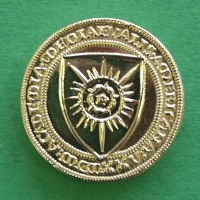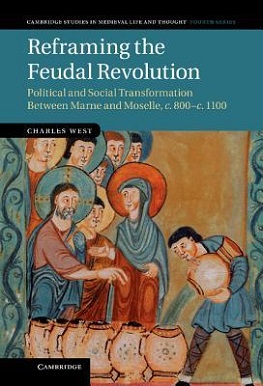
Scholasticism was a medieval school of philosophy that employed a critical organic method of philosophical analysis predicated upon the Aristotelian 10 Categories. Christian scholasticism emerged within the monastic schools that translated scholastic Judeo-Islamic philosophies, and thereby "rediscovered" the collected works of Aristotle. Endeavoring to harmonize his metaphysics and its account of a prime mover with the Latin Catholic dogmatic trinitarian theology, these monastic schools became the basis of the earliest European medieval universities, contributing to the development of modern science; scholasticism dominated education in Europe from about 1100 to 1700. The rise of scholasticism was closely associated with these schools that flourished in Italy, France, Portugal, Spain and England.

A medieval university was a corporation organized during the Middle Ages for the purposes of higher education. The first Western European institutions generally considered to be universities were established in present-day Italy, including the Kingdoms of Sicily and Naples, and the Kingdoms of England, France, Spain, Portugal, and Scotland between the 11th and 15th centuries for the study of the arts and the higher disciplines of theology, law, and medicine. These universities evolved from much older Christian cathedral schools and monastic schools, and it is difficult to define the exact date when they became true universities, though the lists of studia generalia for higher education in Europe held by the Vatican are a useful guide.

John Peckham was a Franciscan friar and Archbishop of Canterbury in the years 1279–1292.

Robert Kilwardby was an Archbishop of Canterbury in England and a cardinal. Kilwardby was the first member of a mendicant order to attain a high ecclesiastical office in the English Church.

Zhuang Zhou, commonly known as Zhuangzi, was an influential Chinese philosopher who lived around the 4th century BCE during the Warring States period, a period of great development in Chinese philosophy, the Hundred Schools of Thought. He is credited with writing—in part or in whole—a work known by his name, the Zhuangzi, which is one of the foundational texts of Taoism.
Ælfric of Eynsham was an English abbot and a student of Æthelwold of Winchester, and a consummate, prolific writer in Old English of hagiography, homilies, biblical commentaries, and other genres. He is also known variously as Ælfric the Grammarian, Ælfric of Cerne, and Ælfric the Homilist. In the view of Peter Hunter Blair, he was "a man comparable both in the quantity of his writings and in the quality of his mind even with Bede himself." According to Claudio Leonardi, he "represented the highest pinnacle of Benedictine reform and Anglo-Saxon literature".

Jacques Le Goff was a French historian and prolific author specializing in the Middle Ages, particularly the 12th and 13th centuries.

Crowland Abbey is a Church of England parish church, formerly part of a Benedictine abbey church, in Crowland in the English county of Lincolnshire. It is a Grade I listed building.

Sippe is German for "clan, kindred, extended family".
Živinbudas was one of the five senior Lithuanian dukes mentioned in the treaty with Halych-Volhynia in 1219. The treaty lists a total of 21 dukes, five of them being elder or superior. Since Živinbudas is mentioned first in the list, it is presumed that he was the supreme ruler of Lithuania. He is not mentioned in any other sources and the mention in the treaty is the only bit of information available about him. However, some historians argue he was ancestor of Traidenis, Grand Duke of Lithuania ca. 1270-1282. That is probably influence of the Palemonids legends popularized by fake 16th century genealogies that connected a mythical Palemon, a prince of Venice who settled in Lithuania in the 10th century, to the Gediminids, an established dynasty.
Gaudemunda Sophia of Lithuania was the daughter of Traidenis, Grand Duke of Lithuania. In 1279 she married Duke of Masovia Bolesław II of the Piast dynasty. He was the son of Ziemowit I, Prince of Masovia, and Pereyaslava, daughter of Daniel of Galicia of the Rurik dynasty.
Michael David Knowles was an English Benedictine monk, Catholic priest, and historian, who became Regius Professor of Modern History at the University of Cambridge from 1954 to 1963.
Brian Oliver Murdoch is a British philologist who is Emeritus Professor of German at the University of Stirling. He specializes in the study of early Germanic and Celtic literature, on which he has authored and edited several influential works.

The Principality of Peremyshl was a medieval petty principality centred on Peremyshl in the Cherven lands.

High-reeve was a title taken by some English magnates during the 10th and 11th centuries, and is particularly associated with the rulers of Bamburgh. It was not however only used by rulers of Bamburgh; many other places used the title; e.g. there was an Ordulf "High-Reeve of Dumnonia".
Maria of Vitebsk was the first wife of Algirdas, future Grand Duke of Lithuania.

The Haskins Medal is an annual medal awarded by the Medieval Academy of America. It is awarded for the production of a distinguished book in the field of medieval studies.
William Miller, FBA was a British-born medievalist and journalist.

Reframing the Feudal Revolution: Political and Social Transformation Between Marne and Moselle, c. 800–c. 1100 (ISBN 978-1-107-02886-9) is a scholarly book by Charles West. It is based on his Ph.D. thesis, 'Upper Lotharingia and Champagne c.850 to c.1100'.












